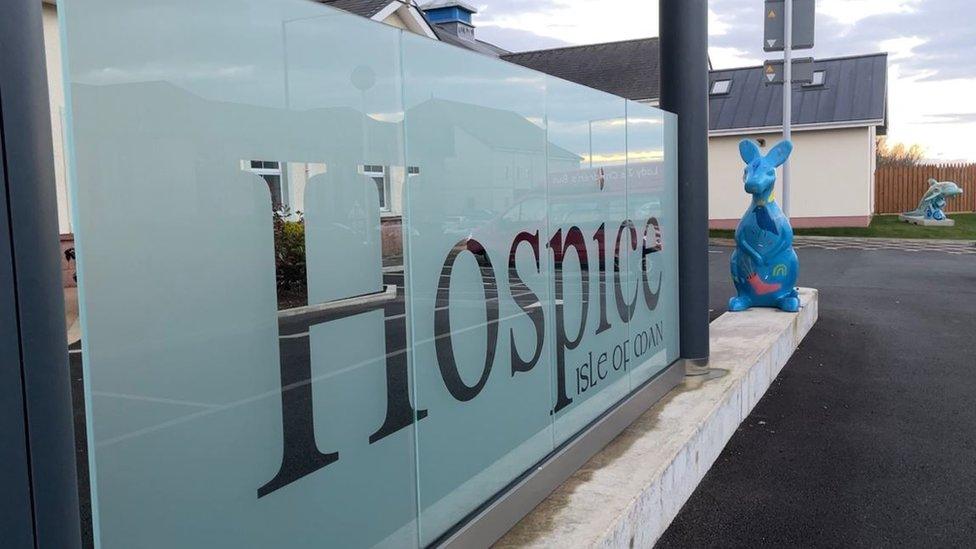Hospices in the North West facing funding crisis
- Published
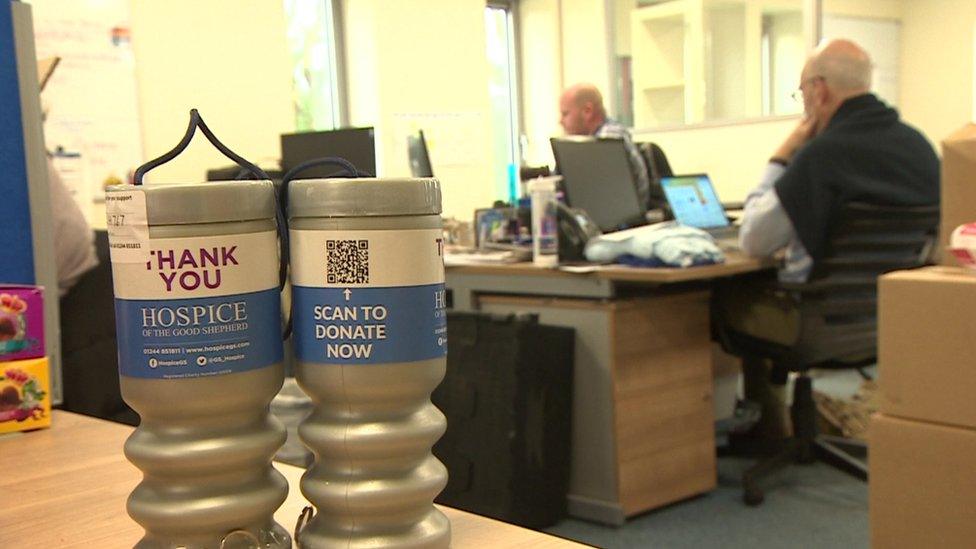
Hospices are having to raise money so that people can have a dignified death
Hospices across the north-west of England have said they are facing a funding crisis.
Twenty-nine of the 30 in the region have warned of a budget shortfall over the next year.
They said vital services would have to be cut if they did not receive more funding from the government.
The Department of Health and Social Care said it was up to local health care boards to decide how much funding went into end-of-life care.
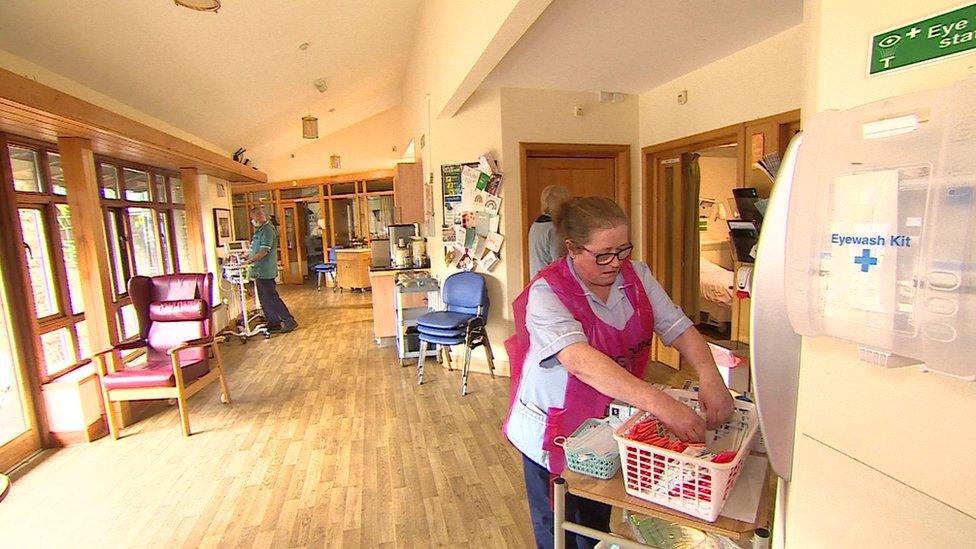
Hospices across the North West have said they are facing a funding crisis
The hospices in the region provide end-of-life and palliative care for some 23,000 people in the region.
They said their budget is not increasing in line with the demand for their services.
The issue is replicated throughout the country, according to a report by Hospice UK, external published in September 2023.
It found that government funding for adult hospice services had fallen by £47m in the past two years.
The region's centres receive about a quarter of their funding from the government and must self-fund the rest.
They are currently waiting to hear how much government funding they will receive for 2024/25.
The Hospice of the Good Shepherd, near Chester, said they need to raise about £12,000 a week, or more than £4m a year, to keep going.
But with the cost of living crisis, an increase in energy costs and inflation, that's becoming increasingly difficult.
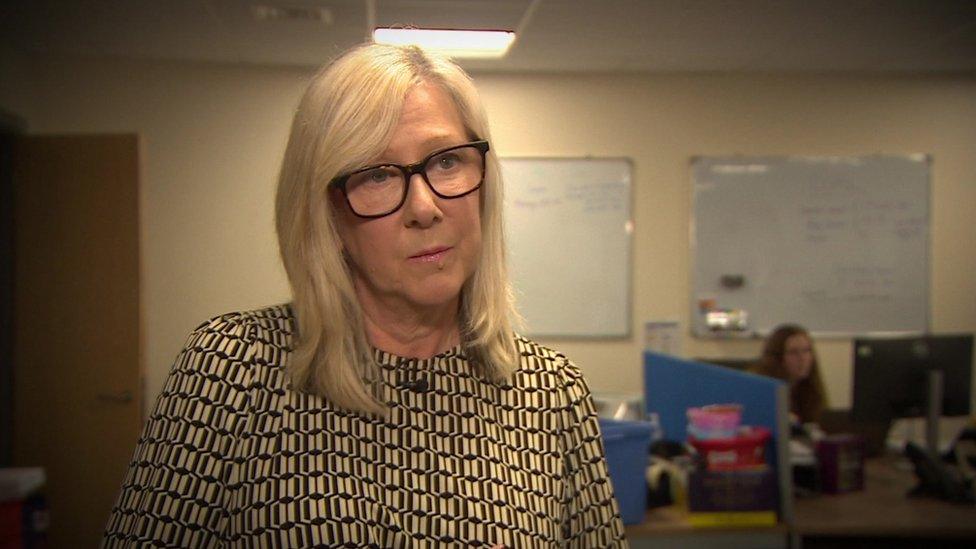
Caroline Siddall said the hospice at which she is the funding director needs to raise £4m a year
Director of Funding at the hospice Caroline Siddall said the job is getting harder all the time.
"It's so difficult to think ahead of how we are going to raise £4m," she said.
"And what if we don't - that's the big question. What if we can't do that?"
A parliamentary report, external published in January 2024 found that the current funding model for hospices was "not fit for purpose" and, as a result, the services and the value they provide to the health system are at risk.
The report, carried out by the All Party Parliamentary Group (APPG) for Hospice and End Of Life Care, concluded that "the UK government must produce a national plan to ensure the right funding flows to hospices".
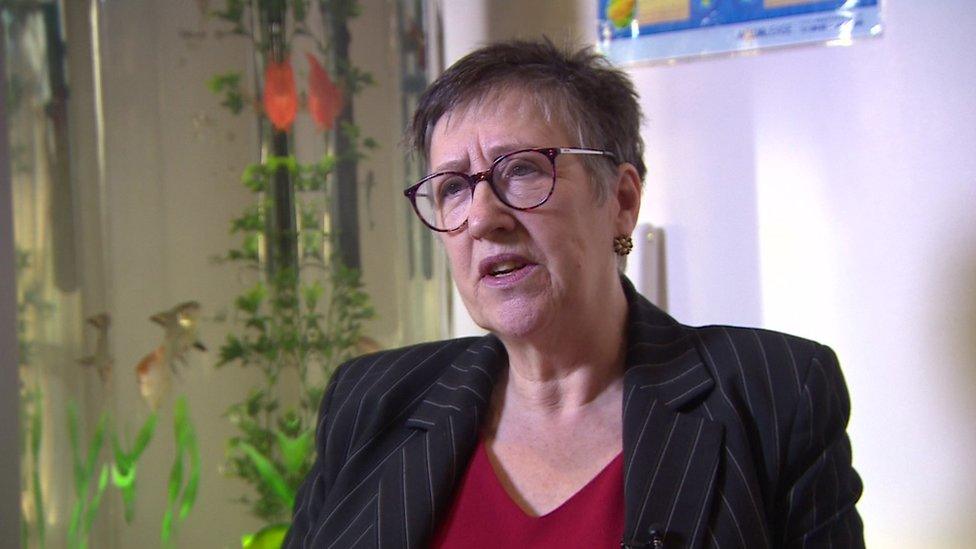
Dr Leigh Vallance said the government needs to understand the need for a fairer funding deal
Dr Leigh Vallance, Chief Executive for Bolton Hospice, said: "The deal with the NHS has always been we as a charity bring £2 to the table and the NHS comes with £1.
"But over the past 10 to 12 years that £1 has reduced to 90p, 80p, and now it's below 70p.
"Add to that the cost of living and a big hole opens up."
Some hospices are already having to make difficult choices.
St Ann's, the largest hospice in Greater Manchester, has had to close nine beds across its two sites while four hospices across Cheshire and Merseyside have also reduced their services.
"The perverse part is that patients who use hospices will then have to use the NHS, A&E," Dr Vallance said.
"You won't be able to discharge patients from wards.
"There will then be more people and more pressure on the GPs at a greater cost to the NHS.
"The government needs to understand the need for a fairer funding deal so we are not overly subsidising the highly specialist palliative and end-of-life care support that we provide up and down the country."
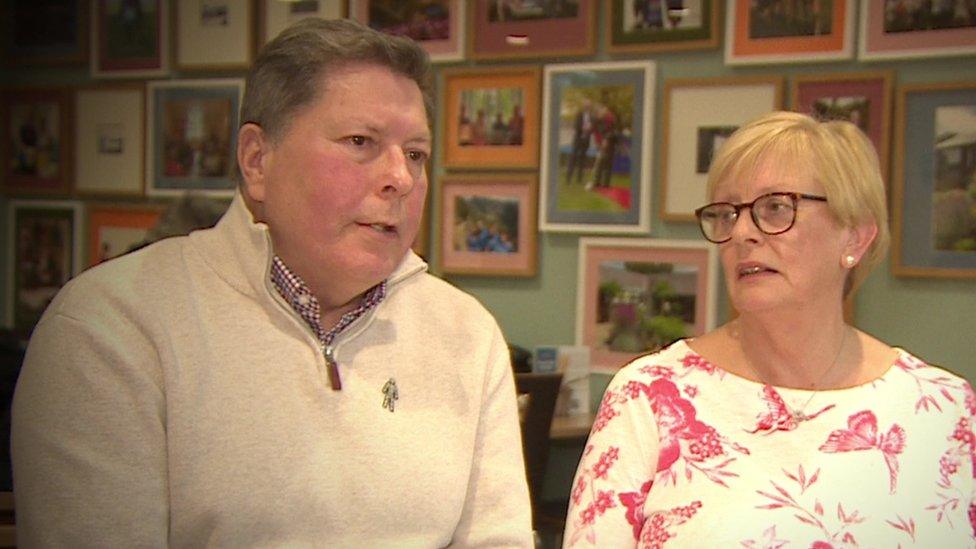
Robin and his wife Rose meet up with other patients every Tuesday in a hospice cafe
Robin Allwood was diagnosed with cancer in 2016 and has been using the services at the Hospice of the Good Shepherd, near his home in Chester, for five years.
Robin and his wife Rose meet up with other patients every Tuesday in the hospice cafe which is also a source of income for the centre.
"When I came here they helped me to come to terms with what I've got," he said.
"We walk in on a Tuesday and they can see if you're down.
"They instantly help us out."
Rose said: "I don't know how we'd manage without them, the support is amazing.
"It would be heart-breaking if things like this go. They need the funding. They cannot rely solely on charity."
The biggest cost to hospices is staff.
They employ specialist doctors, nurses and consultants from the same pool of staff as the NHS and they have to match their salaries.
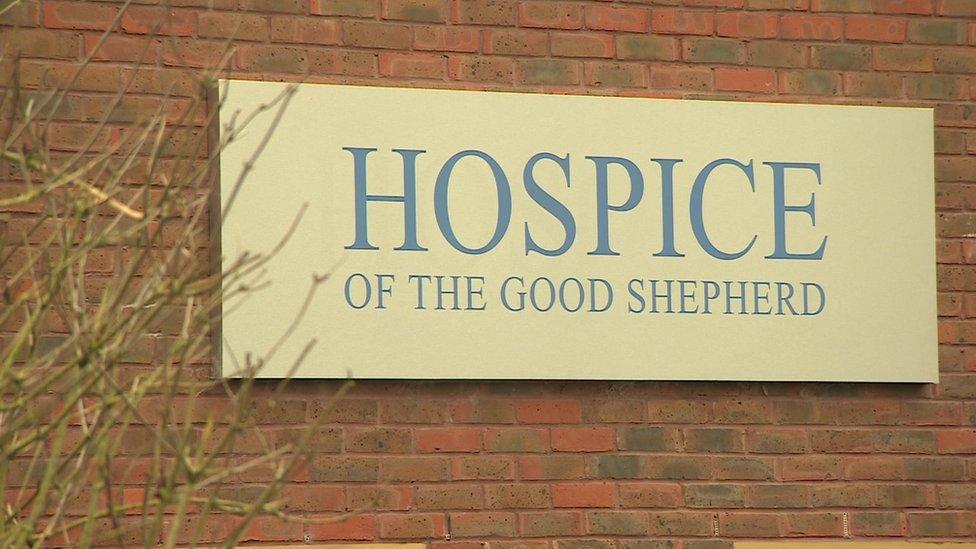
Twenty-nine of the region's 30 hospices said they are facing a budget shortfall over the next year
Liz Taylor, Director of Clinical services at the Hospice of the Good Shepherd, said they are only using eight out of its 12 beds because of staff shortages.
"The inpatient unit costs around £2m a year," Dr Taylor said.
"We have to fund everything, from the basics of food, and then medical equipment, medicines.
"A new cupboard for our controlled drugs recently cost about five to six thousand pounds so I have to go to our director of income generation and say to her I need this, how are we going to get the money?"
Statutory funding for hospices is distributed through local Integrated Care Boards.
The BBC spoke to the ICBs for Greater Manchester, Cheshire and Merseyside and Lancashire and South Cumbria.
They all said they were "experiencing considerable financial pressures but were committed to funding the work hospices do".
'Dignified death'
A Department of Health and Social Care spokesperson said: "We are backing the NHS and social care with a record £14.1bn this year and next - the biggest funding increase in history.
"We want everyone to have access to high-quality end of life care, which is why we require all local NHS integrated care boards to commission palliative and end-of-life care services to meet the needs of their local populations.
"The level of hospice funding is decided by those boards with the NHS providing guidance on the standard of end-of-life care that must be provided."
Caroline Siddall, from Hospice of the Good Shepherd, said the end of peoples' lives must be considered as important as the beginning of them.
"We have to go out and raise money so people can have a dignified death," she said.
"I think the public would be outraged if they thought maternity services were dependent on someone doing a car boot sale or a bucket collection.
"They'd be outraged."

Why not follow BBC North West on Facebook, external, X, external, and Instagram, external? You can also send story ideas to northwest.newsonline@bbc.co.uk, external
Related topics
- Published19 June 2023
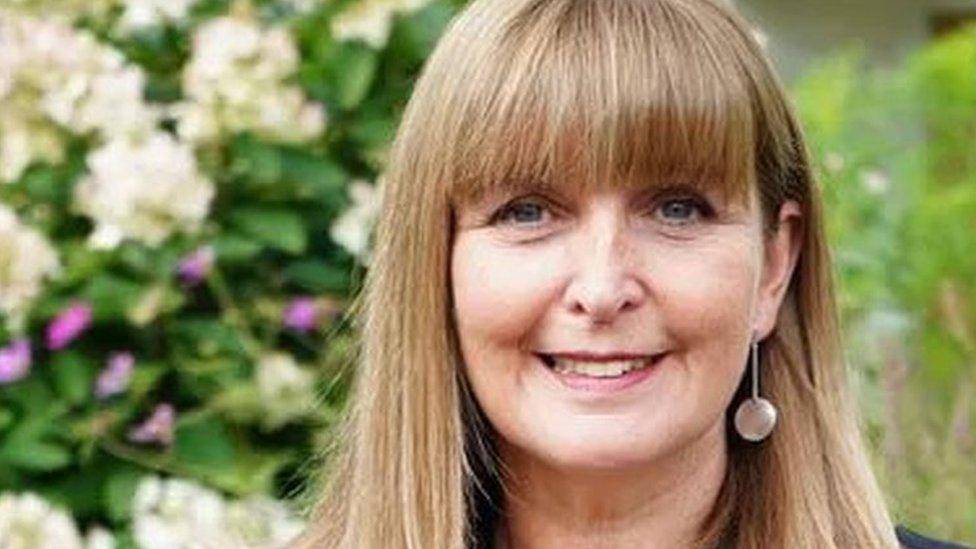
- Published13 October 2023
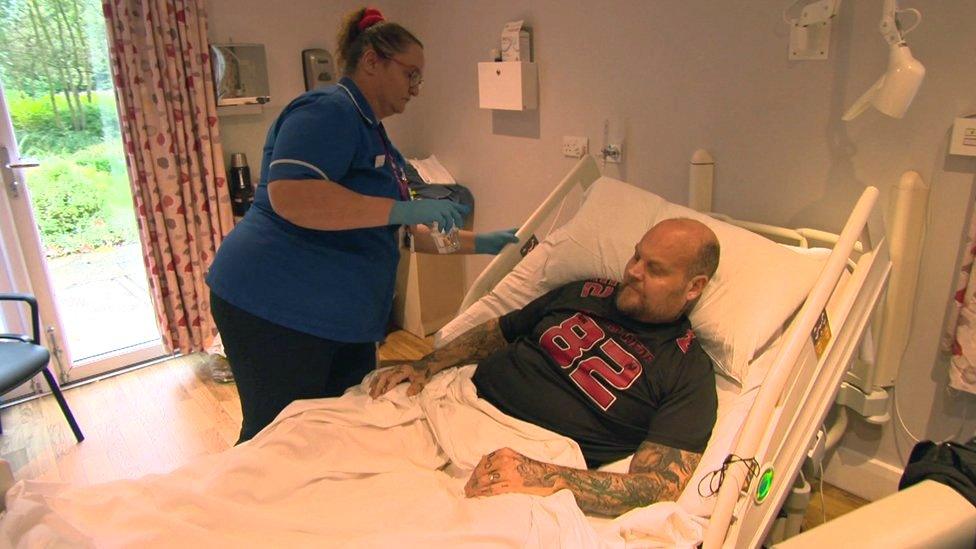
- Published26 January 2024
